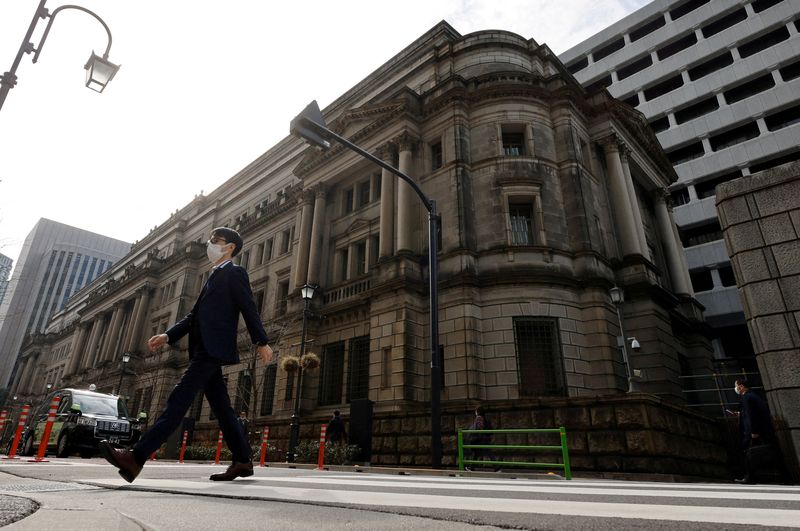By Leika Kihara
TOKYO (Reuters) - The Bank of Japan may hold off on ending negative interest rates until around April next year to gauge whether wage gains will broaden enough to keep inflation sustainably at its 2% target, former central bank policymaker Makoto Sakurai told Reuters.
With inflation exceeding 2% for more than a year, markets are rife with speculation the BOJ will raise short-term interest rates from the current -0.1% as early as the end of this year.
Ending negative interest rates likely won't hurt the economy much as inflation-adjusted real borrowing costs will remain low, said Sakurai, a former BOJ board member who retains close ties with incumbent policymakers.
But the central bank will be in no rush to phase out stimulus due to signs of weakness in Japan's economic recovery, such as sluggish consumption and slower-than-expected capital expenditure, he said on Tuesday.
The BOJ remains an outlier in maintaining its easy policy stance with much of the global economy facing aggressive interest rate increases over the past 18 months or so to tame inflation.
Uncertainty over the U.S. and Chinese economic outlook also gives the BOJ reason to go slow on rate hikes, Sakurai added.
"Ending negative rates will be largely a symbolic move, but the BOJ probably wants to time it very carefully," Sakurai said.
Even if the central bank were to end negative rates, it will likely describe the move as a modest adjustment to the degree of monetary stimulus, he said.
"The last thing the BOJ wants is to give the public an impression it is tightening monetary policy," he added.
Japan's core inflation hit 3.1% in August, staying above the BOJ's 2% target for a 17th straight month, as more firms hike prices to pass on rising raw material costs to households.
Such changes in corporate price-setting behaviour have heightened expectations the BOJ will soon phase out its yield curve control (YCC) policy, under which it guides short-term rates at -0.1% and the 10-year bond yield around zero.
In July, it raised a hard cap for the 10-year yield to 1.0% from 0.5% to allow long-term interest rates to rise more freely reflecting higher inflation.
By loosening its grip on yields, the BOJ bought itself time to scrutinise overseas developments and the domestic wage outlook, before phasing out stimulus, said Sakurai, who as board member was involved in the adoption of YCC in 2016. His five-year term at the board ended in 2021.

While big firms may continue to offer higher pay next year, the key is whether smaller firms can follow suit. Japan's output gap also needs to turn positive for wages to rise in tandem with inflation in a sustainable fashion, he said.
"Having taken action in July, the BOJ may not have to do anything big at least for the rest of this year and even well into next year," he said.